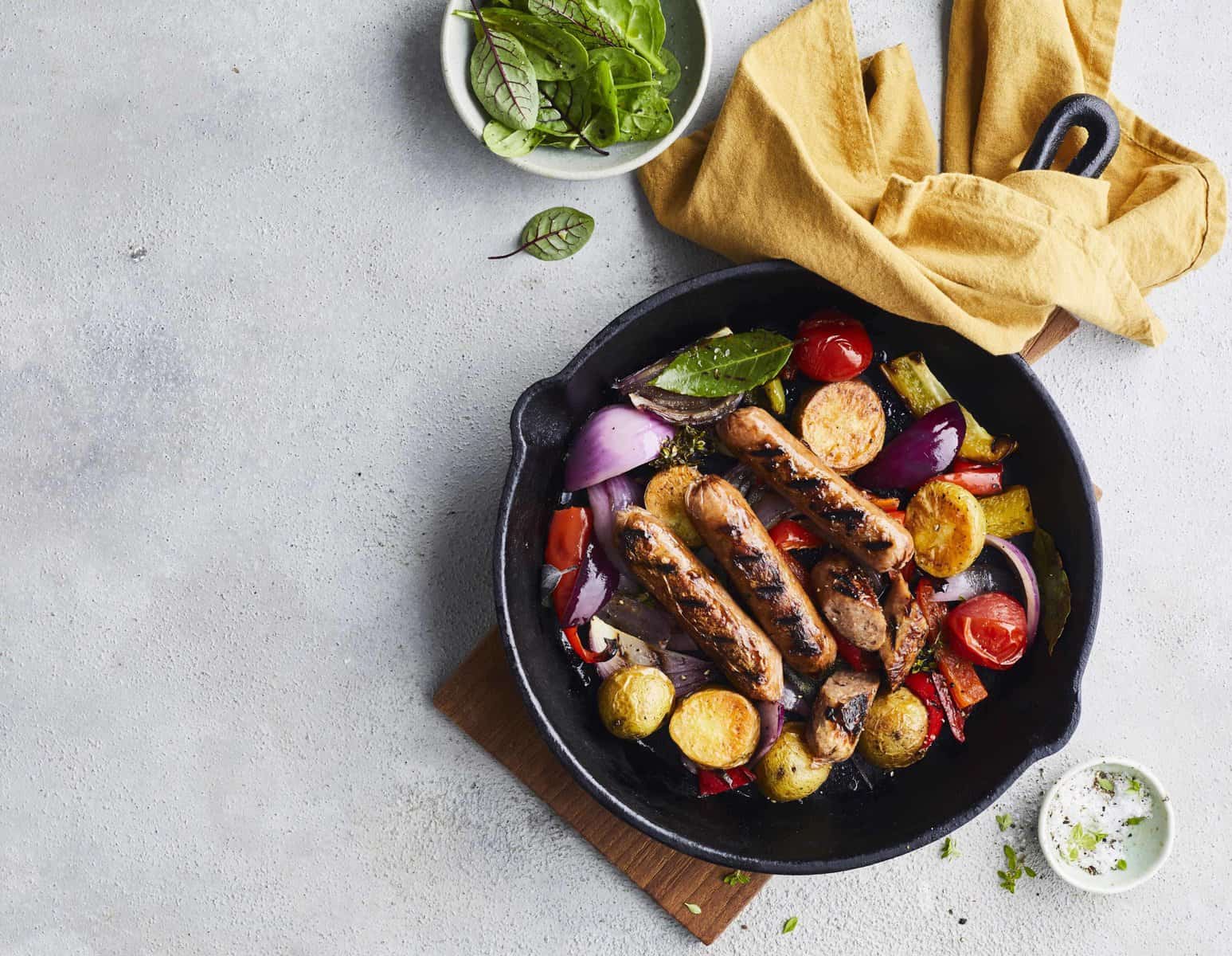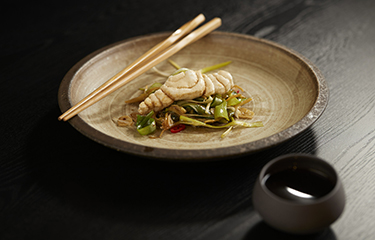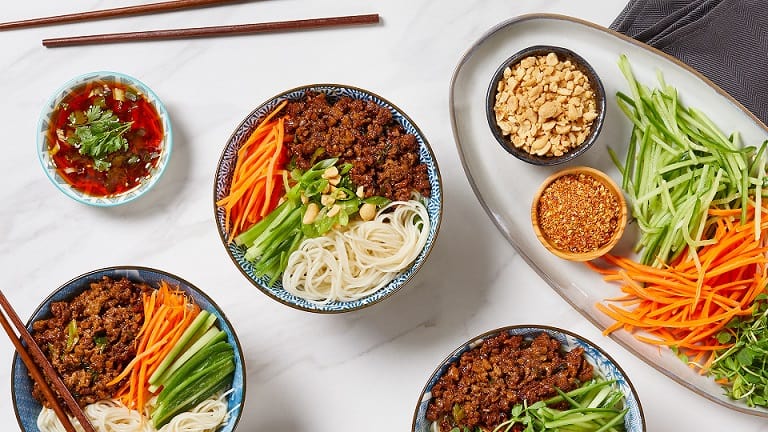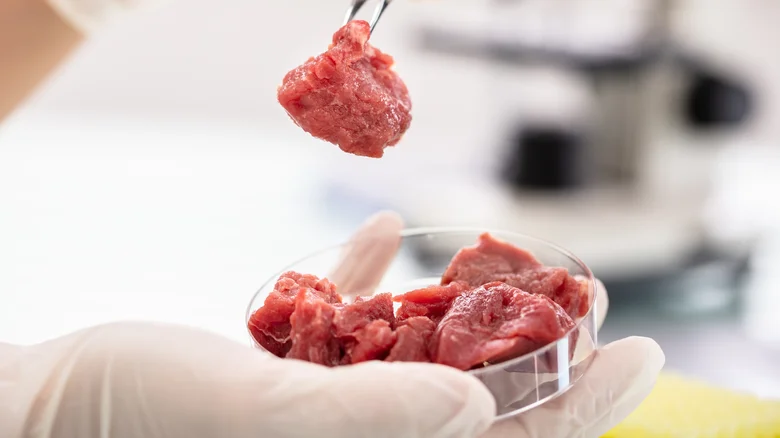Lab-grown lamb, artificial intelligence-generated flavour mimicry, and vegan culinary prowess could put “meat” and “tuna” sandwiches back on the table for a growing number of Australians seeking sustainable and ethical sources of protein.
Victorian start-up Magic Valley has announced the advent of Australia’s first “cultivated” lamb meat prototype, a mince that allegedly looks and cooks just like the real thing.
It’s the latest innovation targeting almost a third of Australians who have reduced their traditional meat consumption for health, ethical or environmental reasons over the past year.
A gentle scraping of cells from a lamb’s ear was all it took to begin the process of growing a slaughter-free “real meat product”, says Magic Valley founder and CEO Paul Bevan.
Once scaled up, the entire process would take “a handful of weeks” and allow manufacturers to tailor the nutritional profile to minimize saturated fats or add vitamins and minerals.
“If we can develop a real meat product that tastes exactly the same but is healthier for you, more sustainable, and better for the planet … it becomes an obvious choice,” Bevan says.

Magic Valley is already fielding enquiries from restaurants, particularly steakhouses, but it’s unlikely the product will receive regulatory approval before 2024.
In the meantime, technological advances have seen Australia’s $185 million plant-based meat market explode with convincing alternatives such as the “bleeding” Impossible Beef burger.
International food tech company Future Farm introduced a plant-based “tuna” to Coles supermarkets this month. The flavour and texture is “so close to the real product” vegan author and influencer Renee Buckingham (@sydneyveganguide, @melbourneveganguide) said she “almost felt sick about it”.
That’s thanks to artificial intelligence, says Future Farm founder Marcos Leta.
“One of our main technologies is this AI that is like an artificial tongue. That tongue can capture the entire experience of flavour, mouth-feeling, texture [and] juiciness of the food,” he says.
That data allows food scientists to compare plant-based and traditional fish at a molecular level and create “an updated version” made with legume proteins and microalgae, with a texture that closely resembles canned tuna.

“The technology behind the ingredients has definitely escalated the market,” says Emma White, a Melbourne food technologist who co-founded vegan pie and sausage roll company Why Meat Co.
ABS data reveals the popularity of plant-based alternatives jumped 14 per cent over the past year as more Australians adopt “meat-free Mondays” and “flexitarian” diets.
White developed her products with pea protein, a “relatively new” alternative to soy, without GMOs or allergens.
Amanda Lethlean opened Melbourne’s first vegan butcher shop in Ascot Vale in 2020, motivated by a desire to “make the transition from a meat-eating diet to a meat-free one as easily and efficiently as possible”.

“No one wants to trade their burger for some grated carrot and zucchini,” Lethlean says. “But now there’s really a substitute for everything. It does mean you really don’t have to go without.”
Kynd Butcher stocks a selection of texturally-plausible, locally-sourced mock meat, such as NooMoo deli “meats”, alongside bigger Aussie brands like Fable, the creator of a shiitake mushroom “meat”. But Lethlean is sceptical about lab-grown alternatives.
“It’s hard enough to get someone to try a vegetable sausage, let alone something grown from stem cells,” she says.
Vegan smallgoods manufacturer Suzy Spoon argues “delicious ingredients” and a “push for excellence” are all that’s needed to create top-shelf meat alternatives.
“We’re cooks, not food scientists. For us, it’s not necessarily about making something that bleeds, it’s about making something that tastes good, ” she says.
For 12 years, Spoon has been expanding her line of plant-based products, offering Sydneysiders everything from thinly-sliced “pastrami” to smoky rashers of “bacon” using wheat gluten and spices. The mock meat gained nationwide attention last year when the range started to appear in select Coles and Woolworths supermarkets.
Chef Frederic Mariage leans on 26 years of culinary experience to create his own plant-based “chicken breast” and “beef” for Newtown eatery Le Gourmand. After a lot of trial and error, he landed on a mix of marinated wheat gluten, jackfruit and tofu, which is used in dishes such as beef bourguignon and chicken confit.
“It can be very challenging,” he says. “But I’m passionate. I want to create a beautiful dish and see that look on my customer’s face when they try it.”
Regardless of whether the mock meat is grown in the lab or created in a chef’s kitchen, Buckingham says recent developments make plant-based eating more accessible for the average diner.
“It has such an important place in getting people to reduce their meat intake,” she says. “I think it’s the future.”

Feeling adventurous? Three products to try:
Future Farm Tvna
This plant-based tuna alternative is sold in familiar, flaky chunks and filled with protein (11.3g per serve) and omega 3. The taste (and smell) are convincing, thanks to an AI “tongue” that helps food scientists formulate the optimal mix of protein and natural plant aromas. Use it in tuna melts, pasta bakes and even salads.
$6.50 for 150g, available in Coles nationwide.
Fable braised ‘beef’
This shiitake mushroom-based “meat” delivers a dense, fleshy and umami-rich alternative. With more than 60 per cent of the product made from mushrooms, it’s also packed full of antioxidants and B vitamins. Backed by acclaimed chef Heston Blumenthal, Fable can be used to make a plausible bolognese sauce, beef wellington and chilli con carne.
$7.50 for 250g, see fablefood.co for stockists including select Coles and Harris Farm supermarkets.

Suzy Spoon’s ‘pastrami’
This plant-based pastrami looks and tastes very similar to the real thing. It’s made from wheat protein, onions and a mix of herbs, sauces, oils and spices. Thinly sliced and richly-flavoured, it’s perfect for making a New York deli-style sandwich or serving on a charcuterie board.
$12 for 150g, available from select Woolworths and Coles supermarkets.








